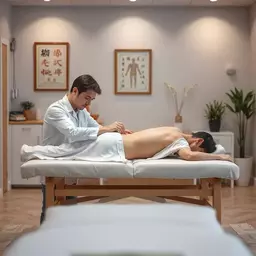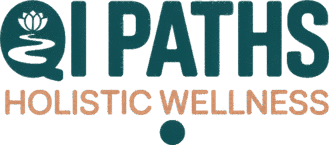Discover Acupuncture's Many Benefits

A surprising fact about acupuncture is that it has been practiced for over 2,500 years, yet it continues to gain popularity in modern health care for its holistic benefits. This ancient technique not only addresses pain relief but also promotes emotional and mental well-being, making it a versatile option for many health concerns.
What You Will Learn
- Acupuncture offers a holistic approach, addressing both physical and emotional health.
- Customized treatments allow for personalized care that caters to individual health needs.
- It is generally safe with minimal side effects, making it a preferable option over many pharmaceuticals.
- Research indicates that acupuncture can effectively alleviate chronic pain and improve mental health.
- The practice has evolved from ancient traditions to a respected part of integrative health care in the modern world.
- Many patients experience significant improvements in their health after just a few sessions.
- Acupuncture can be integrated with other therapies to enhance overall treatment outcomes.
Key Benefits of Acupuncture
Acupuncture offers numerous advantages for holistic health, as detailed below.
Natural Pain Relief
Acupuncture provides effective relief for chronic pain without the use of medication.
Boosts Immune System
Regular acupuncture sessions can enhance your immune response, promoting overall health.
Supports Mental Health
Acupuncture aids in managing anxiety and depression, contributing to emotional well-being.
Menopause Symptom Management
Acupuncture can alleviate symptoms associated with menopause, improving quality of life.
Understanding the Advantages of Acupuncture in Modern Health Care
Acupuncture, a fundamental practice in Traditional Chinese Medicine (TCM), has been gaining traction in modern health care. It's fascinating how this ancient technique, which involves the insertion of thin needles into specific points on the body, can offer profound health benefits. As someone deeply invested in holistic wellness through my work at Qi Paths, I often find that acupuncture not only complements conventional medicine but also enhances overall well-being.
At its core, acupuncture aims to balance the body’s energy, or Qi, promoting natural healing. This practice is based on the understanding that our physical, emotional, and spiritual aspects are interconnected. By addressing imbalances within these areas, acupuncture can help individuals achieve better health outcomes and improve their quality of life. Research indicates that acupuncture is effective for various conditions, as highlighted by the National Center for Complementary and Integrative Health.
What Is Acupuncture? An Overview of Traditional Chinese Medicine
Acupuncture is one of the most recognized components of Traditional Chinese Medicine. It’s rooted in the belief that health is a harmonious balance of energy flow. The key principle here is that when the flow of Qi is disrupted, illness can occur. This is where acupuncture comes in, as it seeks to restore this flow by stimulating specific points, known as acupoints, throughout the body.
These acupoints correspond to various organs and systems. When needles are inserted, they stimulate the body’s natural healing processes. This can lead to numerous benefits, including pain relief, improved digestion, and enhanced mental clarity. Here are some key elements of acupuncture:
- Holistic Approach: Addresses both physical symptoms and emotional well-being.
- Customizable Treatments: Sessions can be tailored to individual needs, creating personalized care.
- Minimal Side Effects: Generally safe, with fewer adverse effects than many pharmaceuticals.
The Historical Context and Evolution of Acupuncture Practice
The history of acupuncture dates back thousands of years, originating in China. Over time, it has evolved and adapted, spreading to various parts of the world, including Europe and North America. This integration into modern health systems showcases its adaptability and relevance. Early practitioners relied on observation and experience, which laid the foundation for the more systematic approaches we see today.
As acupuncture gained recognition in the West, researchers began exploring its efficacy through scientific studies. This has led to a growing body of evidence supporting its use for a variety of health conditions, including those related to cancer treatment, as discussed by the National Cancer Institute. From its humble beginnings, acupuncture has transformed into a respected component of integrative health care, bridging ancient wisdom with modern science. Here are significant milestones in its evolution:
- Ancient Texts: The Huangdi Neijing, one of the oldest medical texts, outlines foundational acupuncture practices.
- Global Acceptance: In the 1970s, acupuncture gained popularity in Western countries, particularly after notable medical demonstrations.
- Scientific Research: Ongoing studies have provided insight into the physiological mechanisms that underlie acupuncture's effectiveness, further validating its health and well-being benefits.
Quick Summary
Here's a brief recap of the key points discussed so far:
- Acupuncture is a key component of Traditional Chinese Medicine, focusing on balancing the body's energy or Qi.
- This practice not only alleviates physical symptoms but also supports emotional well-being through a holistic approach.
- Acupuncture has evolved over centuries, gaining recognition in the West due to scientific studies supporting its efficacy.
- Patients often experience significant improvements in their quality of life after treatments, making acupuncture a valuable option for holistic health.
Summarizing the Positive Outcomes of Acupuncture Therapy
As we wrap up our exploration of acupuncture, it’s essential to reflect on the myriad of benefits this ancient practice offers. At Qi Paths, we believe in the power of acupuncture to transform lives, whether through pain relief, improved mental health, or enhanced overall wellness. Understanding these positive outcomes can empower individuals to take charge of their health and healing journeys.
Acupuncture has been shown to provide a variety of holistic health benefits. From alleviating chronic pain to supporting emotional balance, it can play a significant role in creating a healthier lifestyle. As you consider how acupuncture might fit into your wellness routine, remember these key advantages:
- Natural pain relief without medication
- Boosting the immune system
- Supporting mental health and emotional well-being
- Menopause symptom management
Key Takeaways on the Benefits of Acupuncture for Holistic Health
When thinking about the benefits of acupuncture, we can identify several key takeaways that highlight its importance in modern health care. First, acupuncture is not just about alleviating pain; it's a holistic approach that addresses the body and mind. This means that many patients find improvements in their overall quality of life after treatments.
Furthermore, acupuncture encourages a sense of balance and harmony in the body. It can help regulate various bodily functions, promoting better sleep, digestion, and emotional stability. Here are some takeaways to keep in mind:
- Acupuncture offers a personalized approach to health.
- It can be integrated with other treatments for enhanced results.
- Many patients report significant improvements after just a few sessions.
- The therapy is generally safe and has minimal side effects.
Real-Life Case Studies: Success Stories from Acupuncture Patients
At Qi Paths, we love sharing success stories that reflect the transformative power of acupuncture. One notable example is a patient named David, who came to us struggling with chronic back pain. After several sessions, he reported not only a reduction in pain but also improved sleep and mood. David’s journey is a testament to how acupuncture can provide comprehensive care.
Another inspiring story comes from Linda, who sought relief from anxiety. With a combination of acupuncture and mindfulness practices, she found a new level of emotional balance. Her testimonial emphasizes how acupuncture can support mental health alongside physical well-being.
- David: Overcoming chronic back pain and improving sleep.
- Linda: Finding emotional balance through acupuncture.
- Sarah: Managing menopause symptoms effectively.
Encouraging Informed Decisions About Acupuncture
As you consider incorporating acupuncture into your health routine, it’s essential to be well-informed. Understanding the benefits and the process can help you make confident decisions. Here at Qi Paths, we strive to provide all the information you need to embark on this journey of healing.
By arming yourself with knowledge, you can explore how acupuncture can fit into your life. Whether it’s addressing a specific health concern or enhancing your overall wellness, knowing what to expect can ease any reservations you might have.
Frequently Asked Questions About Acupuncture Benefits
Many people have questions about acupuncture and its benefits. Here are some common inquiries we receive:
- What conditions can acupuncture treat? Acupuncture is widely used for pain relief (e.g., chronic back pain, headaches), but it also helps with anxiety, depression, insomnia, fertility issues, and digestive problems.
- Is acupuncture safe for everyone? Generally, acupuncture is safe when performed by a licensed and experienced practitioner. However, it might not be suitable for individuals with bleeding disorders, those on blood thinners, or people with pacemakers. Always consult your healthcare provider.
- How many sessions will I need to see results? The number of sessions varies depending on the individual and the condition being treated. Some people experience relief after just a few sessions, while chronic conditions may require more ongoing treatment.
- Can acupuncture be combined with other treatments? Yes, acupuncture can be safely integrated with conventional medical treatments and other complementary therapies to enhance overall outcomes and support holistic healing.
- Does acupuncture hurt? Most patients report little to no pain. The needles are very fine, and while you might feel a slight prick or dull ache, it is generally well-tolerated.
How to Get Started with Acupuncture: Finding the Right Practitioner
Finding the right acupuncturist is a crucial step in your healing journey. At Qi Paths, we encourage you to look for a practitioner who is experienced and certified. It’s also important to feel comfortable and connected with them.
Here are some tips to help you find the right acupuncturist:
- Research local practitioners and read reviews.
- Ask about their qualifications and experience.
- Schedule a consultation to discuss your health goals.
- Trust your instincts—choose someone you feel comfortable with.
Understanding What to Expect in Treatment Sessions
During your initial session, the acupuncturist will likely conduct a thorough assessment. This may involve discussing your health history and lifestyle to tailor the treatment to your specific needs. The actual acupuncture process usually involves the insertion of thin needles into specific points on the body, which may feel unusual but should not be painful.
As you embark on this journey with acupuncture, remember that each person’s experience is unique. Staying open to the process can lead to wonderful outcomes, as many patients have discovered through their own paths at Qi Paths.
Recap of Key Points
Here is a quick recap of the important points discussed in the article:
- Holistic Healing: Acupuncture addresses the physical, emotional, and spiritual aspects of health.
- Personalized Treatment: Sessions can be customized to meet individual health needs, enhancing effectiveness.
- Minimal Side Effects: Acupuncture is generally safe with fewer adverse effects compared to pharmaceuticals.
- Proven Benefits: Effective for pain relief, boosting immune function, and supporting mental health.
- Informed Choices: Understanding the benefits and treatment process is key to effective decision-making.
- Choosing the Right Practitioner: Research and connect with experienced, certified acupuncturists for the best results.








